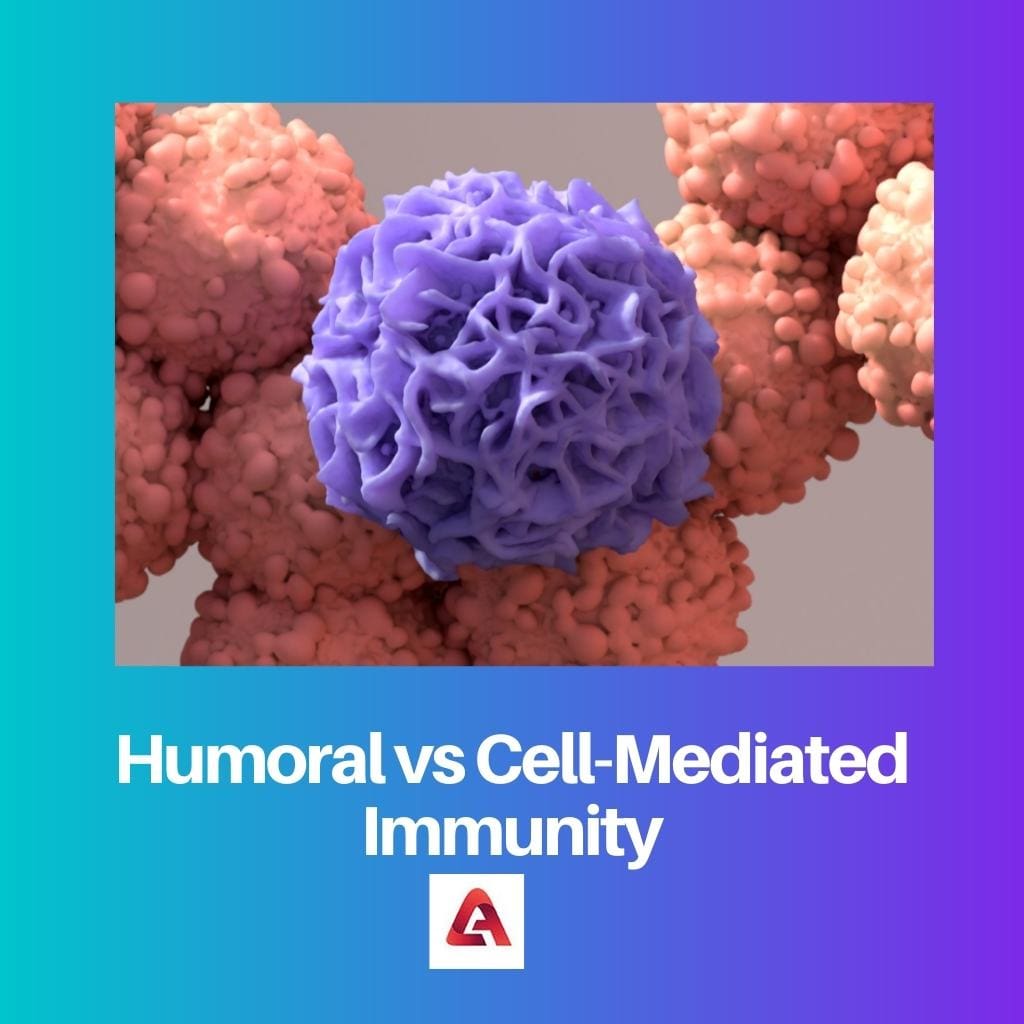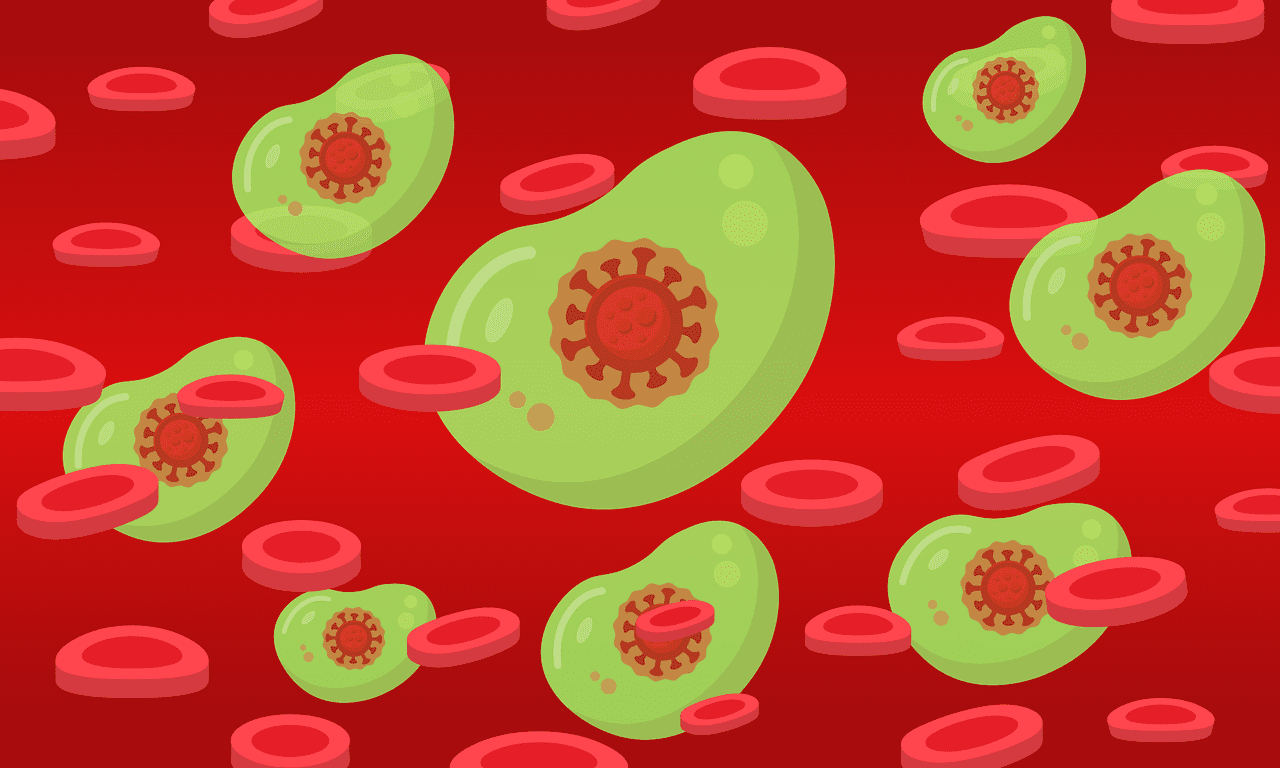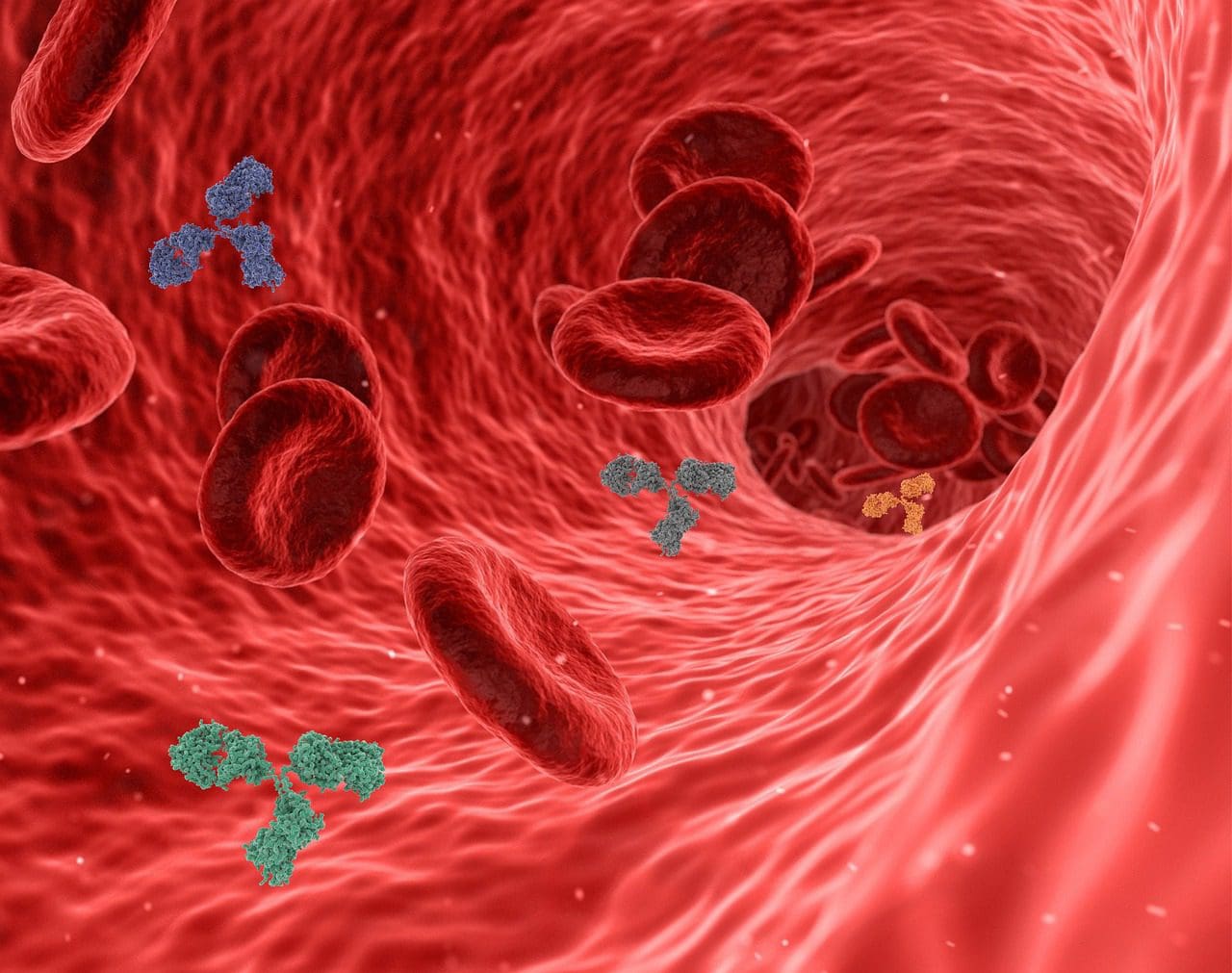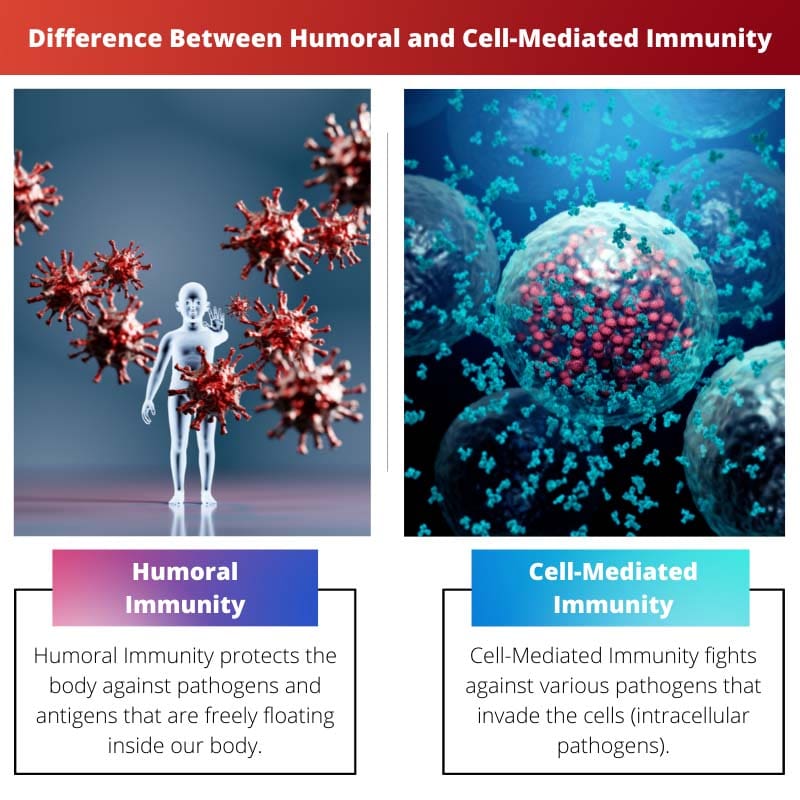To stay healthy, every multi-cellular organism has a defense mechanism to fight against the foreign cellular organism invading the body.
This mechanism is otherwise called immunity. Immunity is an intricate mechanism in our body that identifies the self and foreign materials.
It readies the body to fight against foreign material and restore normalcy in the body. There are different types of immunity mechanisms present in our bodies.
Adaptive and innate are two main types of immunity. The adaptive immune system consists of several specialized cells that prevent pathogens’ growth and destroy the pathogen.
Innate immunity is the primary defense against bad micro-organisms and eliminates the infection. Among the different types of immunity, humoral and cell-initiated immunity are the two major mechanisms in the adaptive immune defense system.
Humoral immunity is a category of immunity that is intervened by macro-molecules and antibodies in body fluids outside the cells. It is also called an antibody-mediated immune system, as antibodies are a primary defense mechanism in establishing immunity.
A specific type of cell produces these antibodies. Cell-initiated or cell-mediated immunity is also a part of the adaptive immune system.
It protects the body from pathogens that have entered or invaded a body cell. Antibodies do not mediate the response in Cell-mediated immunity.
Rather the defense mechanism is achieved with the help of receptors to detect the antigens.
Key Takeaways
- Humoral immunity involves the production of antibodies by B cells in response to a foreign substance, whereas cell-mediated immunity involves the activation of T cells to destroy infected cells.
- Humoral immunity is effective against extracellular pathogens, whereas cell-mediated immunity is effective against intracellular pathogens.
- Humoral immunity is involved in the defense against bacterial infections and viruses, whereas cell-mediated immunity protects against viral and fungal infections.
Humoral vs. Cell-Mediated Immunity
Humoral immunity is mediated by B cells, which produce and secrete antibodies that recognize and neutralize specific antigens, such as bacteria or viruses. Cell-mediated immunity is mediated by T cells, which can recognize and destroy infected or abnormal host cells, such as those that have been invaded by viruses or cancerous cells.

Comparison Table
| Parameters of Comparison | Humoral Immunity | Cell-Mediated Immunity |
|---|---|---|
| Definition | Humoral Immunity protects the body against pathogens and antigens that freely float inside our body. | Cell-Mediated Immunity fights against various pathogens that invade the cells (intracellular pathogens). |
| Mechanism | The immune response is mediated by the antibodies produced mainly by B-lymphocytes, macrophages, and T-lymphocytes. | The immune response is mediated by releasing cytokines, cytotoxic T-lymphocytes, and natural killer and helper T-cells. |
| Secretion | It releases antibodies | It releases cytokines |
| Function | The B-cells produce antibodies that bind and detect the antigen. | The T-cell receptors are responsible for the detection and binding to the antigen. |
| Fight Against | Extracellular bacterial and virus pathogens | Intra-cellular bacterial and pathogens |
| Response Time | Rapid | Slow |
| Hypersensitivity | The humoral immune system mediates hypersensitivity type I, II, and III. | Cell-mediated immunity mediates hypersensitivity type IV. |
What is Humoral Immunity?
Humoral cell immunity is one of the major types in the adaptive immune system. The immune response in humoral immunity is mediated or governed by antibodies produced by B-lymphocytes.
The B-lymphocyte cells identify the antigen or the free-floating foreign substance in the body fluids (blood/lymph). When the plasma B-lymphocytes detect the free-floating foreign material, they produce suitable antibodies that bind to the specific antigen (foreign substance).
Then the antigen gets neutralized, and antibodies destroy the antigen by lysis or phagocytosis.
Macrophages and T-helper cells also assist the immune system by helping the B-lymphocytes to activate plasma B-lymphocyte cells as soon as the antigen is detected. These activated plasma cells carry antigen-specific antibodies that bind to the pathogen, and lysis takes place.
Memory cells are produced after the destruction of the antigen by the same B-lymphocytes. These memory cells would be responsible for future immunity when the same antigen is detected in the body again.
It should be noted that the initial stage of graft rejection is associated with humoral immunity due to the development of antibodies against the pathogen. And the immune response is rapid when compared to cell-mediated immunity.

What is Cell-Mediated Immunity?
Cell-Mediated Immunity is another type of adaptive immunity where T-lymphocytes, cytotoxic, and other natural and helper T cells mediate the immune response. Cell-mediated immunity acts against the antigen or pathogens that invade the cells.
The cell-mediated immune response is to fight against fungi, intracellular bacterial pathogens, and viruses. In the case of cell-mediated immunity, it is not governed by antibodies.
Instead, it is mediated by T-lymphocytes receptors.
Cytokines are released by helper T-cells which will trigger the T-lymphocytes. Then, the T-cells bind to the antigen and differentiate into cytotoxic T-cells.
This would initiate the lysis of the cell, and thus, the antigen gets destroyed. This immune system is specifically for intracellular pathogens.
This immune response is associated with the rejection of organ transplants. Though the response is slow compared to humoral immunity, it leaves a permanent and long-lasting impact.

Main Differences Between Humoral and Cell-Mediated Immunity
- Humoral immunity is mediated or intervened mainly by antibodies produced by B-lymphocytes, whereas cell-mediated immunity is mediated by the production of cytokines from T-lymphocytes.
- To detect antigens, antibodies are employed in humoral immunity. In the case of cell-mediated immunity, receptors are responsible for the detection of antigens.
- Antibodies are formed only in humoral cell immunity and not in cell-mediated immunity.
- Humoral cell immunity helps to fight against free-floating extracellular pathogens, whereas cell-mediated immunity helps to fight against intracellular bacterial pathogens.
- Antibodies produced by humoral immunity bind to the antigen. But in cell-mediated immunity, T-cells bind to the foreign substance (antigen) and differentiate into the cytotoxic cell.
- Hypersensitivity (I, II, III) is governed by humoral immunity, whereas cell-mediated immunity provides hypersensitivity IV.
- Medical research has found that cell-mediated immunity (not humoral immunity) can potentially eradicate tumor cells.




